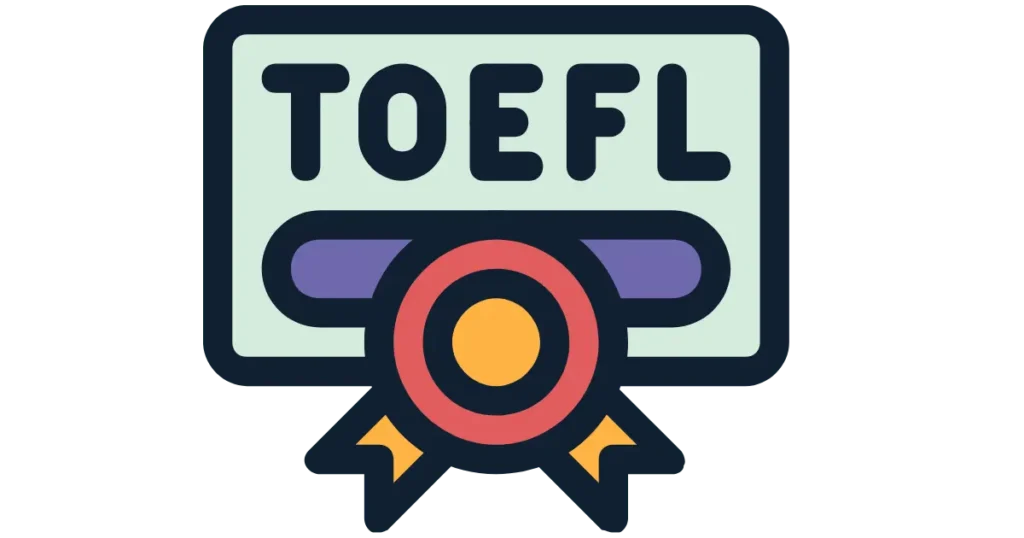- 1 Introduction
- 2 Understanding the TOEFL Exam
- 3 TOEFL Score Requirements for Undergraduate Studies
- 4 TOEFL Score Requirements for Postgraduate Studies
- 5 University Variances in TOEFL Score Requirements
- 6 TOEFL Requirements for German Student Visa
- 7 Preparing for the TOEFL Exam
- 8 Applying for the TOEFL Exam
- 9 TOEFL Fees and Validity
- 10 TOEFL vs. IELTS for German Universities
- 11 Sending TOEFL Scores to German Universities
- 12 TOEFL Cut-Off for Top Universities in Germany
- 13 TOEFL Requirements for Working in Germany
- 14 TOEFL Requirements for Migration Visas
- 15 Preparing for the TOEFL for Migration to Germany
- 16 TOEFL Test Fees and Locations in India
- 17 TOEFL Waivers
- 18 Alternatives to TOEFL
- 19 TOEFL Retakes and Score Improvement Tips
- 20 TOEFL and Visa Interview Tips
- 21 Frequently Asked Questions:
- 21.1 What is the minimum TOEFL score required for studying in Germany?
- 21.2 Which German universities require a TOEFL score for admission?
- 21.3 What is a competitive TOEFL score for top German universities?
- 21.4 Are there alternative tests to TOEFL accepted by German universities?
- 21.5 Do all programs within a university have the same TOEFL requirements?
- 21.6 Is TOEFL mandatory for all international students applying to Germany?
- 21.7 Can I apply to German universities without a TOEFL score?
- 21.8 How long is a TOEFL score valid for university applications in Germany?
- 21.9 What should I do if my TOEFL score is below the required minimum?
- 21.10 How can I find specific TOEFL requirements for my chosen program?
- 22 Conclusion
Introduction
The TOEFL exam is an important requirement for international students desiring admission to master’s programs in Germany. This article tells you about the TOEFL exam, including its importance, score requirements, preparation strategies, and application processes for German universities.
Understanding the TOEFL Exam

The TOEFL (Test of English as a Foreign Language) is an internationally acknowledged test that measures the English proficiency of non-native speakers. Universities, including those in Germany, widely accept it.
The TOEFL consists of four sections:
- Reading: Tests the ability to understand academic texts
- Listening: Evaluates understanding of spoken English in academic settings
- Speaking: Assesses the ability to express ideas orally
- Writing: Measures written communication skills
There are two formats: the Internet-Based Test (iBT) and the Paper-Based Test (PBT), howevder most German universities accept the iBT.
TOEFL Score Requirements for Undergraduate Studies

| University | Minimum TOEFL Score |
|---|---|
| University of Duisburg-Essen | 61 |
| Berlin School of Business and Innovation | 70 |
| Free University of Berlin | 80 |
| Technical University of Munich | 88 |
| RWTH Aachen University | 90 |
TOEFL Score Requirements for Postgraduate Studies
| University | Minimum TOEFL Score |
|---|---|
| University of Freiburg | 100 |
| Technical University of Berlin | 79 |
| University of Bonn | 80 |
| University of Mannheim | 90 |
University Variances in TOEFL Score Requirements
TOEFL score requirements can vary widely between universities and even between different programs at the same university.
| University | Minimum TOEFL Score |
|---|---|
| University of Hamburg | 70 |
| RWTH Aachen University | 90 |
| University of Mannheim | 90 |
| Free University of Berlin | 80 |
It’s essential to verify the TOEFL requirements for each program.
TOEFL Requirements for German Student Visa

International students must meet TOEFL requirements for both admission and student visa applications.
- Student Visa: Minimum TOEFL score typically ranges from 60 to 80, depending on the university.
- Language Course Visa: Designed for students attending language courses.
For study visas, sectional scores may also be required:
| TOEFL Section | Minimum Score |
|---|---|
| Reading | 20 |
| Listening | 20 |
| Speaking | 20 |
| Writing | 20 |
Preparing for the TOEFL Exam
Study Plan
- Develop a practical study schedule.
- Use official TOEFL resources, such as practice tests and guides.
- Set goals for each section and observe progress.
Section-Wise Tips
- Reading: Practice skimming academic texts.
- Listening: Listen to English podcasts or lectures and take notes.
- Speaking: Practice talking on different topics and record yourself for feedback.
- Writing: Practice essays and seek input from teachers or native speakers.
Applying for the TOEFL Exam
To apply for the TOEFL exam:
- Visit www.ets.org/toefl.
- Create an account.
- Select your exam date and location.
- Complete registration and pay the fee (approximately INR 16,900 in India).
After the exam, request official score reports to be sent to your chosen universities.
TOEFL Fees and Validity
- Registration Fee (India): INR 16,900 (USD 215)
- Validity: Scores are valid for two years.
TOEFL vs. IELTS for German Universities
While both TOEFL and IELTS are accepted, some universities may prefer one. TOEFL is computer-based, while IELTS offers both computer and paper-based formats. Choose based on familiarity and availability of test centers.
Sending TOEFL Scores to German Universities
You can send TOEFL scores to four institutions for free during registration. Additional reports cost around USD 20 each. Make sure to provide the correct institution codes when sending scores.
TOEFL Cut-Off for Top Universities in Germany
| University | Required TOEFL Score |
|---|---|
| Technical University of Munich | 88 or above |
| RWTH Aachen University | 90 or above |
| University of Freiburg | 100 or above |
| Free University of Berlin | 80 or above |
| University of Hamburg | 70 or above |
TOEFL Requirements for Working in Germany
TOEFL scores are also relevant for work visas and certain job sectors in Germany. Multinational companies like Siemens often require a minimum TOEFL score, especially for technical roles.
| Job Sector | Minimum TOEFL Score |
|---|---|
| Engineering | 90 |
| Business and Management | 85 |
| Healthcare | 80 |
| Information Technology | 90 |
| Education | 100 |
TOEFL Requirements for Migration Visas

For migration visas, the TOEFL score requirements may depend on the applicant’s educational background, work experience, and the type of job they are applying for in Germany. While the TOEFL may not always be a strict requirement for migration, it can be necessary for individuals seeking to work in English-speaking environments within Germany.
Common TOEFL Requirements for Migration:
- Skilled Worker Visa: A TOEFL score of at least 80-100 may be required for those applying for jobs in technical fields or managerial positions.
- Permanent Residence Visa: While there are no strict TOEFL requirements for this visa, demonstrating proficiency in English can strengthen the application, particularly for those seeking jobs in international companies.
Example TOEFL Score Requirements for Various Migration Visas:
| Visa Type | Minimum TOEFL Score Required |
|---|---|
| Skilled Worker Visa | 85-100 |
| Job Seeker Visa | 70-90 |
| EU Blue Card | 90-110 |
Preparing for the TOEFL for Migration to Germany
Preparing for the TOEFL with the goal of migration requires understanding which scores are valued in the sectors or companies where you are seeking employment. Many international companies in Germany, particularly in fields like engineering, IT, and healthcare, require TOEFL scores of 90 or above.
Some strategies for preparation include:
- Focusing on professional vocabulary relevant to your field of work
- Practicing business communication skills to demonstrate English fluency in a professional setting
- Utilizing TOEFL preparation materials that are tailored for workplace and migration contexts
Additional Resources for TOEFL Preparation and Migration to Germany
TOEFL Preparation Tools
- Official TOEFL Practice Tests: These provide a real-time experience of the TOEFL test environment and help identify strengths and weaknesses.
- TOEFL iBT® Practice Sets by ETS
- Online TOEFL Preparation Courses: Many platforms offer tailored courses that cover all sections of the exam.
- Popular platforms include Coursera, edX, and Magoosh TOEFL Prep.
- TOEFL Test Prep Books: For a more comprehensive approach, books like The Official Guide to the TOEFL Test are excellent resources.
- Available through Amazon, bookstores, or the official ETS website.
Migration and Study in Germany Resources
- DAAD (German Academic Exchange Service): A complete resource for students planning to study in Germany, providing information on scholarships, visa requirements, and university applications.
- German Missions Abroad: Official websites provide up-to-date information on visa applications, requirements, and TOEFL-related guidelines for migration.
- Study in Germany: This platform offers a guide for international students on higher education, scholarships, and TOEFL requirements for various universities.
TOEFL Test Fees and Locations in India
It could be helpful to provide details on the cost of taking the TOEFL test and where students in India can take it.
- Test Fees: The cost of the TOEFL iBT in India is around $185 (fees may vary depending on the test center).
- Test Centers: test is generally conducted (e.g., Delhi, Mumbai, Bangalore, Hyderabad).
TOEFL Score Reporting Process
- Score Reporting: Candidates can send their TOEFL scores directly to institutions through the ETS website. the number of institutions to which free score reports can be sent (usually 4).
- Additional Reports: If more than four score reports are needed, there may be an additional fee.
TOEFL Waivers
Some universities or visa offices may waive TOEFL requirements under specific conditions.
- Waiver Eligibility: Students who have completed previous education in English-medium institutions may not need to submit TOEFL scores. students should check individual university policies for waiver eligibility.
Alternatives to TOEFL
While TOEFL is widely accepted, other English proficiency tests might also be considered by German institutions.
- Other Tests: IELTS, PTE (Pearson Test of English), or Cambridge English exams. This provides flexibility for students who may prefer a different exam format.
TOEFL Retakes and Score Improvement Tips
- Retaking TOEFL: Candidates can retake the TOEFL test after 12 days if they need a higher score.
- Improvement Strategies: focus on weak areas, using TOEFL prep books, taking more practice tests, or enrolling in a TOEFL preparation course.
TOEFL and Visa Interview Tips
For students who may need to attend a visa interview, include a brief note on the role TOEFL scores might play in that process.
- Visa Interview Preparation: Some visa interviews may touch on language proficiency, so it could be valuable for students to know their TOEFL scores and be prepared to discuss their English skills during the interview.
Frequently Asked Questions:
Which German universities require a TOEFL score for admission?
Most universities, including Technical University of Munich and RWTH Aachen, require TOEFL scores for English-taught programs.
What is a competitive TOEFL score for top German universities?
A score of 90 or above is considered competitive for admission to top-tier German universities.
Are there alternative tests to TOEFL accepted by German universities?
Yes, universities also accept IELTS and PTE as alternatives to demonstrate English language proficiency.
Do all programs within a university have the same TOEFL requirements?
No, different programs may have varying TOEFL score requirements; master's programs often require higher scores than bachelor's programs.
Is TOEFL mandatory for all international students applying to Germany?
While many English-taught programs require TOEFL, some may waive it based on previous education in English.
Can I apply to German universities without a TOEFL score?
Yes, if you have other proof of English proficiency or if your previous education was conducted in English.
How long is a TOEFL score valid for university applications in Germany?
TOEFL scores are typically valid for two years; ensure your score is within this timeframe when applying.
What should I do if my TOEFL score is below the required minimum?
Consider retaking the test or applying to universities with lower score requirements; improving your English skills can help.
How can I find specific TOEFL requirements for my chosen program?
Check the official website of the university or program for detailed and updated TOEFL score requirements.
Conclusion
The TOEFL exam is a crucial requirement for non-native English speakers seeking admission to master’s programs in Germany. By understanding the score reporting process, preparing effectively, and meeting the TOEFL score requirements of your desired universities, you can increase your chances of securing a spot in a top German institution.
